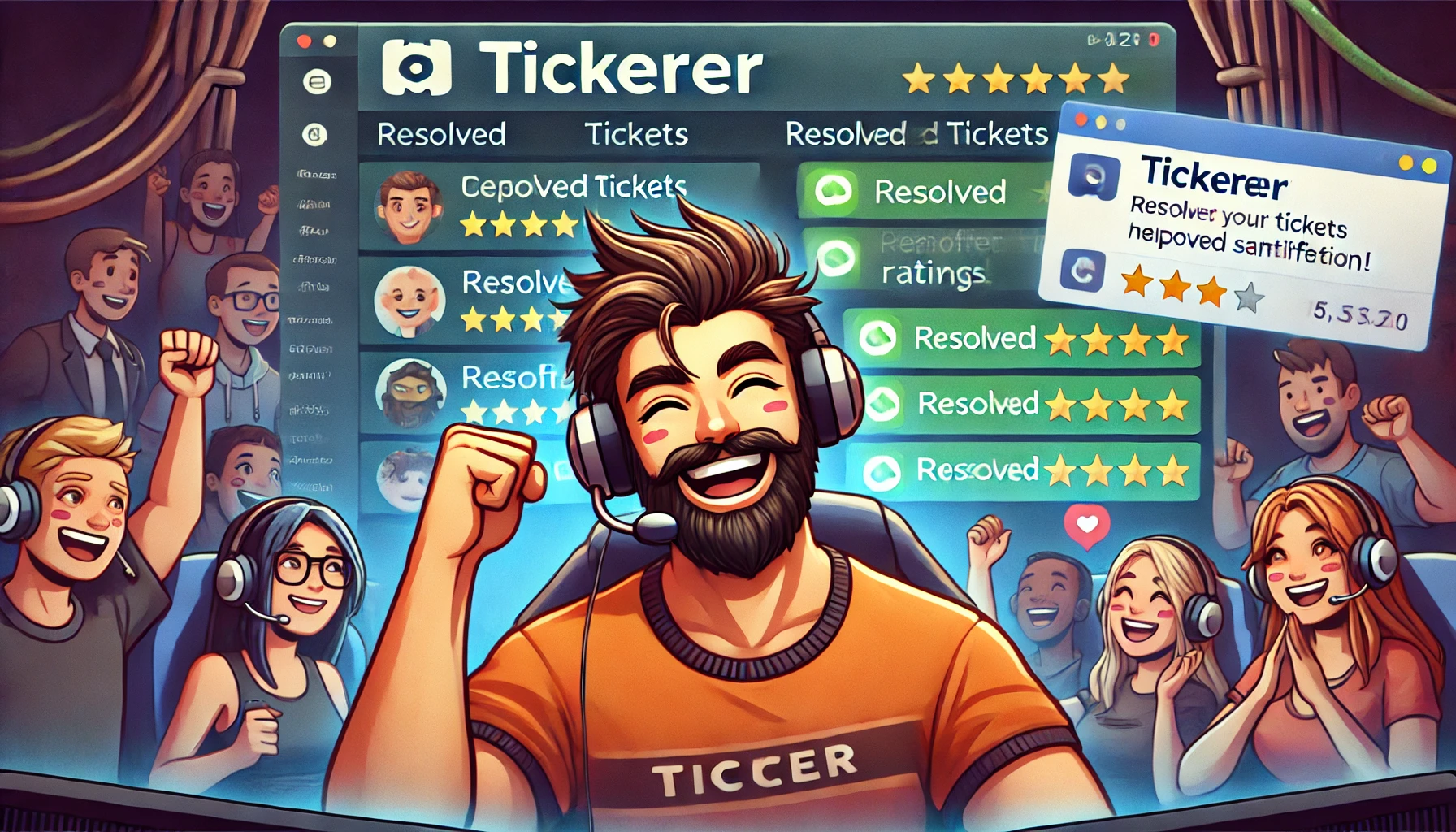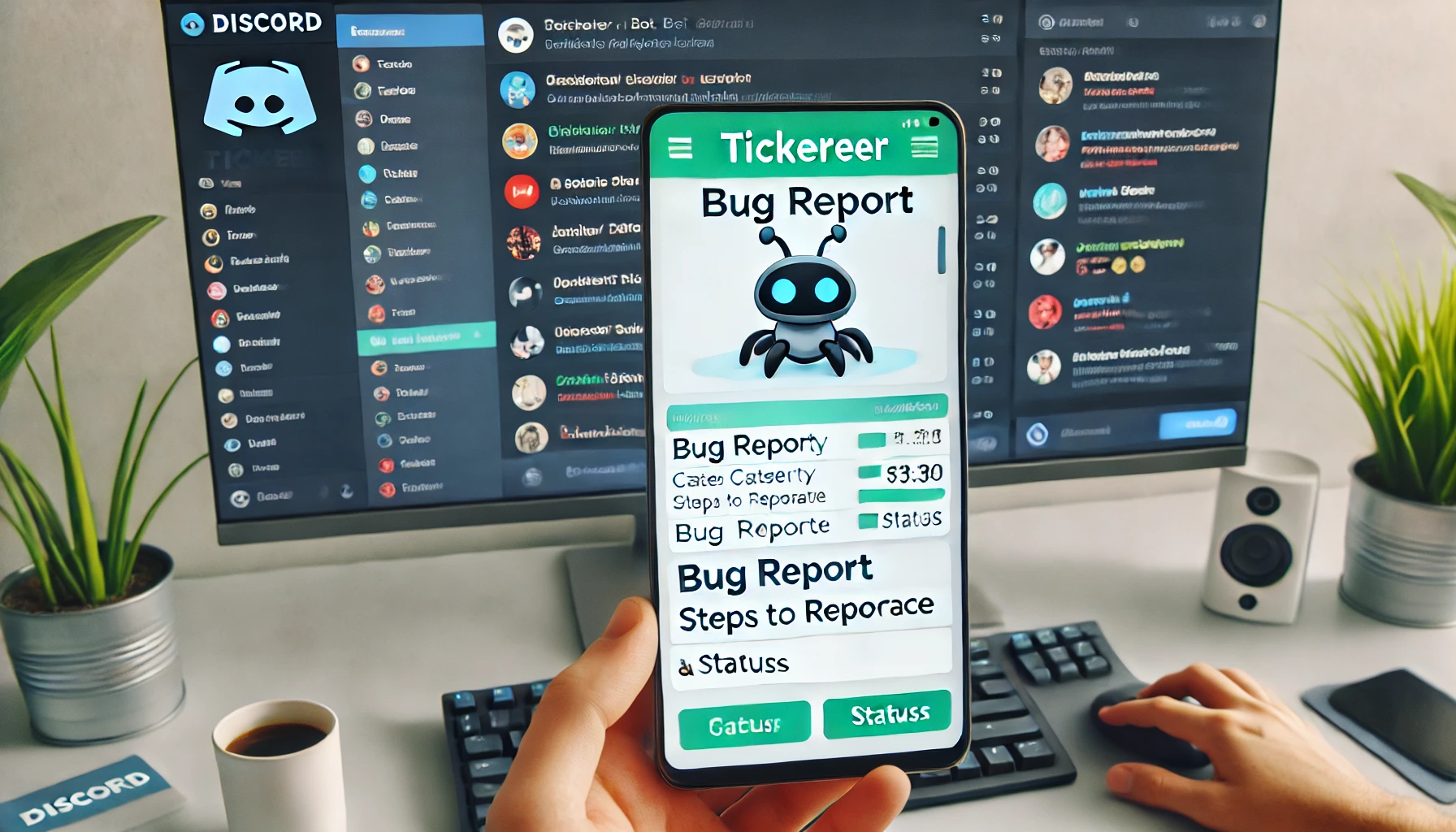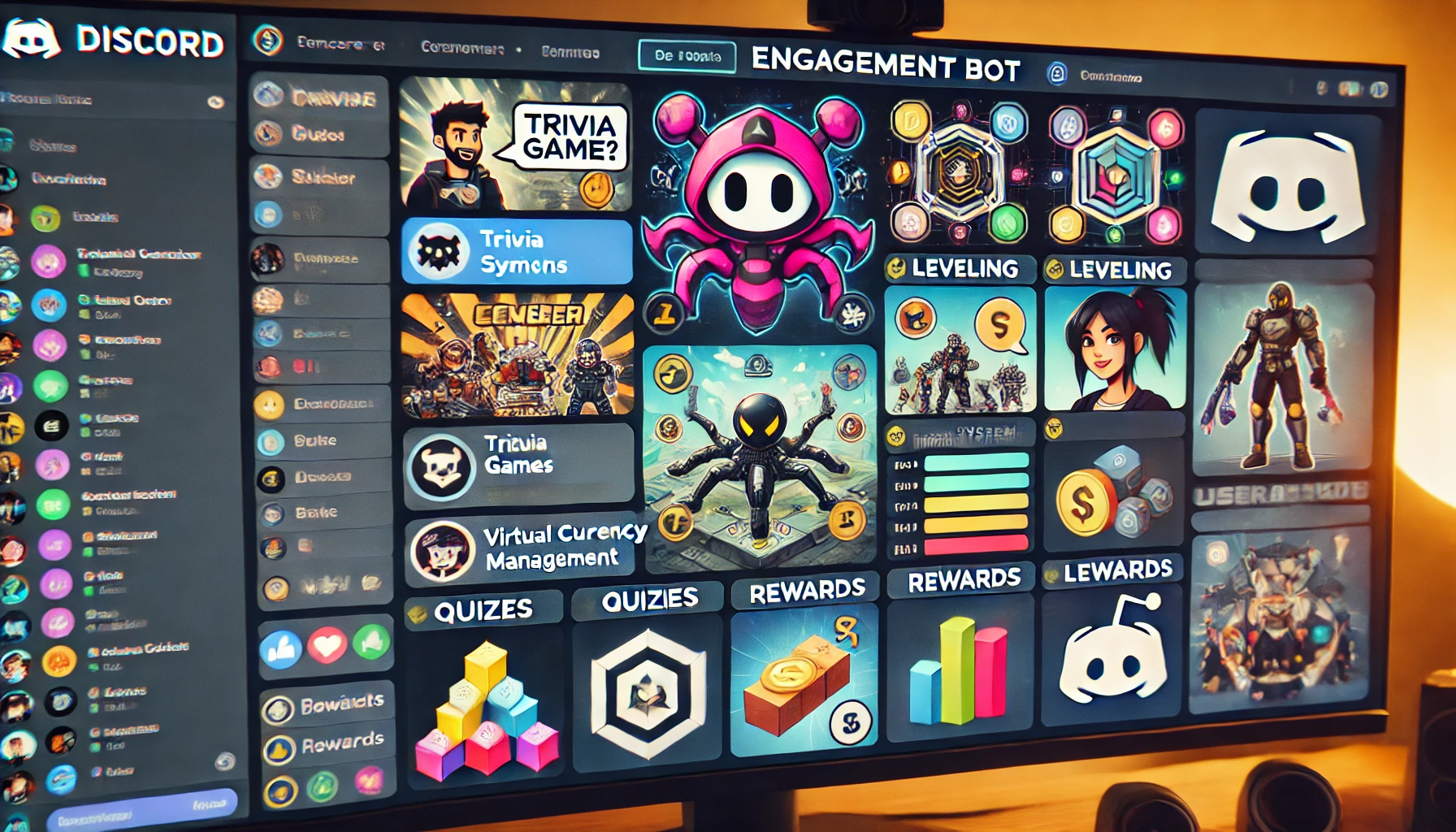In the bustling world of online gaming, maintaining a seamless player support system is crucial for game studios. One of the most effective tools to streamline this process is Discord, particularly when integrated with ticket bots, also known as support bots, issue trackers, or help desk bots. This guide will walk you through how to leverage Discord to enhance your player support, focusing on the benefits and functionalities of ticket bots like Ticketeer.
Understanding the Role of Discord in Player Support
Discord is a powerful communication platform favored by gamers for its real-time interaction capabilities. For game studios, it offers a unique opportunity to engage with players directly, gather feedback, and address issues promptly. However, managing a large volume of support requests can be daunting without the right tools.
Introducing Ticketeer
Ticketeer is an advanced support bot designed specifically for managing support requests on Discord. It allows players to create “tickets” for their issues, which are then categorized, tracked, and resolved systematically. This automation alleviates the burden on support staff, ensuring no request goes unnoticed.
Why Ticketeer Is Essential for Game Studios
1. Efficient Request Management: Ticketeer organizes support requests in a structured manner, making it easier to prioritize and address them based on urgency and importance. This reduces the risk of missing critical issues and enhances overall support efficiency.
2. Improved Response Time: With Ticketeer, support staff can quickly identify and respond to player issues. Automated notifications ensure that new tickets are promptly brought to the attention of the relevant team members, significantly reducing response times.
3. Enhanced Player Satisfaction: Quick and efficient resolution of issues leads to higher player satisfaction. When players see that their concerns are being addressed promptly, it fosters a positive relationship between the game company and its community.
4. Reduced Support Staff Workload: Automating the initial stages of support through Ticketeer reduces the workload on support staff. They can focus on resolving issues rather than manually tracking and categorizing each request, leading to better resource allocation.
5. Data-Driven Insights: Ticketeer provides valuable data on the types and frequency of issues reported by players. This information can be used to identify common problems, improve game features, and enhance overall player experience.
6. Customizable and Scalable: Ticketeer is highly customizable, allowing game studios to tailor the bot to their specific needs. As your community grows, Ticketeer can scale to handle an increasing volume of support requests without compromising efficiency.
7. Seamless Integration: Ticketeer integrates seamlessly with Discord, ensuring a smooth user experience for both players and support staff. Its intuitive interface makes it easy for players to submit tickets and for staff to manage them effectively.
Best Practices for Using Ticketeer
1. Clear Communication Channels: Ensure that players know how to create tickets and what information to provide. Clear instructions and guidelines can prevent confusion and streamline the support process.
2. Regular Updates: Keep players informed about the status of their support requests. Automated status updates from Ticketeer can reassure players that their issues are being addressed.
3. Continuous Improvement: Use the data gathered from Ticketeer to identify recurring issues and address the root causes. Regularly update your support processes based on these insights to enhance overall efficiency.
4. Community Engagement: Encourage players to use the ticket system by promoting it within your Discord server. Highlight the benefits of using tickets for support and make it an integral part of your community engagement strategy.
Additional Tips for Game Studios
1. Empower Your Support Team: Provide comprehensive training for your support staff on how to use Ticketeer effectively. Empower them to take ownership of the support process and encourage them to provide feedback for continuous improvement.
2. Foster a Supportive Community Culture: Create a culture where players feel comfortable reaching out for support. Encourage respectful and constructive communication, and recognize players who help maintain a positive environment.
3. Leverage Player Feedback: Use the insights gained from support tickets to drive game improvements. Players often provide valuable feedback that can help you identify bugs, enhance features, and improve overall gameplay experience.
4. Monitor Trends and Patterns: Analyze the data from Ticketeer to identify trends and patterns in support requests. This can help you anticipate potential issues and proactively address them before they escalate.
5. Promote Self-Service Solutions: In addition to using Ticketeer, provide self-service resources such as FAQs, knowledge bases, and tutorial videos. This can reduce the volume of support requests and empower players to resolve minor issues on their own.
Future-Proofing Your Support System
As your game grows and evolves, so too will the demands on your support system. Here are some strategies to future-proof your player support:
1. Regularly Update Ticketeer: Stay updated with the latest features and improvements of Ticketeer. Regular updates can introduce new functionalities, improve performance, and enhance security.
2. Expand Your Support Team: As your player base grows, consider expanding your support team to maintain a high level of service. This can include hiring more support staff or recruiting volunteer moderators from your community.
3. Implement Multi-Channel Support: While Discord may be your primary support channel, consider integrating other platforms such as email, social media, and in-game support systems. This ensures players can reach you through their preferred communication channels.
4. Enhance Security Measures: Ensure that your support system, including Ticketeer, adheres to the best security practices. Protecting player data and maintaining trust is paramount.
5. Encourage Community Moderation: Empower experienced community members to assist with moderation and basic support. This can help distribute the workload and foster a sense of ownership within your community.
Integrating Ticketeer into your Discord server can revolutionize your player support system. By automating and streamlining the process, you can ensure that every player feels heard and valued. This not only enhances player satisfaction but also frees up your support staff to focus on delivering exceptional service. Embrace the power of Discord and Ticketeer to take your game company’s player support to the next level. With Ticketeer, you can transform your support process, foster a happier community, and drive the success of your game.


